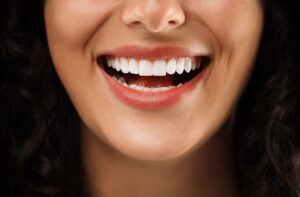When it comes to a healthy looking smile, the general consensus is that whiter is better. As such, whitening strips are available to help gain the look one desires. While there is little debate over the effectiveness of the strips, there has been some concern as to the overall effects the whitening strips may have upon your teeth. To debunk some of the misconceptions about whitening we have addressed some of the issues below.
Does the type of whitening strip matter?
According to webmd, whiteners that contain 10% carbon peroxide in the ingredients have shown no signs of damage to the teeth or the nerves when used in accordance with the instructions. The main thing to note is that the contents need to be under 10%. Additionally, the whitening of the teeth through the use of products which have hydrogen peroxide can be dangerous to the enamel of the teeth. As such, the type of whitening strips you decide to use is very important.
Is adding chemicals to my teeth bad?
Where there is no definitive proof that whitening strips damage the teeth when used properly, there are considerations which must be addressed. First, you have to use the common sense approach to whitening strips. This means that you need to say “hey, I am adding chemicals which are not commonly ingested onto my teeth”. Obviously, the typical person would come to the conclusion that prolonged chemical applications to the teeth would not be beneficial to the overall health of that person’s smile. While there are pros and cons to using the whitening strips as it relates to the teeth, very little can be said about its effects upon the gums. Tests have shown that the nerves are not effected by carbon peroxide treatments, which have less than 10%. However, a person is applying a chemical which is not typically digested or applied to the mouth into the body, so again, follow the instructions accordingly.
Put it this way, if you go to the hardware store and you find some “green” cleaner. It may say that it is non-toxic, but do you really want to start pouring shot glasses of the stuff and downing it. Of course not! Why? Even though it is non-toxic, that does not mean that it is intended to go in the body. The same is true for prolonged chemicals found on whitening strips.
Are over-the-counter strips effective for teeth whitening?
If your eating and lifestyle habits do not encourage ideal tooth health, then it is unrealistic to believe that buying over the counter whitening strips will do much good in cleaning the stains from your teeth. Smoking and drinking wine are the two top deterrents from having success with the products. Yet, even if you do not engage in these two activities, there are other daily habits and factors to take in consideration. If you are not eating healthy foods (such as a diet mainly consisting of fast food (which contains dyes) and sodas (which contain carbon and acids which are bad for the teeth)), then the effects will still be present on the teeth and gums.
Keep in mind also that the whitening strips are generally used as a maintenance of the teeth and not as a treatment method. While there are those brands that put \”treatment\” into the name, this should be noted as a sales and marketing gimmick and nothing more. If the teeth are damaged, then the only real way in which to get your teeth properly cleaned is to go to a dentist.
Do not forget the obvious!
The obvious way to keep your teeth clean and pearly white is to practice every day hygiene. Brush your teeth everyday (recommended that you do it three times), floss, and see your dentist quarterly for cleaning. If you decide to use whitening strips, ensure that you minimize the risks of damage to your teeth by following the instructions on the box. If you have any questions about a whitening strip call the FDA number which is located on the box or contact your family dentist.






